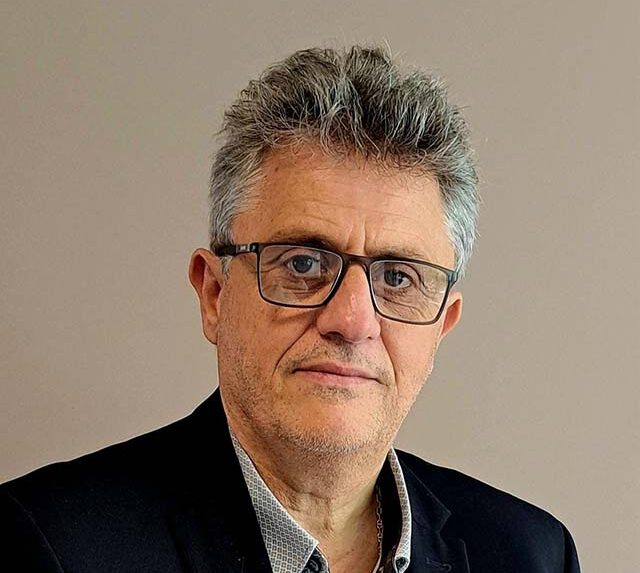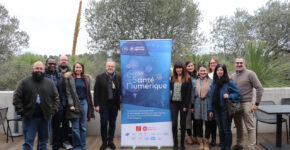Edmond Baranes: In the spotlight of digital technology
At the forefront of digital revolutions, Edmond Baranes has been working on the economics of telecommunications services for three decades. The professor of economics at the University of Montpellier was elected dean of the Faculty of Economics in 2024.

When Edmond Baranes began his thesis at Paris 1 Panthéon-Sorbonne University on the economics of telecommunications networks and services in the early 1990s, he could not have predicted that his field of study would undergo such major upheavals. The professor of economics at the University of Montpellier had a front-row seat to a landscape that was turned upside down by the arrival of the Internet, then restructured around global economic giants such as Google and Microsoft. "I have always been surprised by the speed of change in this sector, by the responsiveness of the players, and by the adoption of new services by users. Today, with generative AI, I feel like it's accelerating even more," says the researcher.
"Very strong reports"
He works in the digital markets, whose transformations have "raised multiple questions for economic analysis." He has seen France Telecom become Orange, the opening up of the market to competition, the golden age of telecom operators, and then the expansion of digital content providers—the GAFAM becoming MAMAA (Microsoft, Amazon, Meta, Apple, and Alphabet). The economist studies the relationships between operators and providers, which have become asymmetrical in the face of the new digital giants. "By basing their business model on data, providers need more and more bandwidth; operators must keep up and invest accordingly in networks, with no guarantee of a return on investment. I took part in discussions in Brussels, where I witnessed some very heated exchanges," says Edmond Baranes, who also witnesses the lobbying activities of these private players: "They now have an unprecedented influence on the functioning of markets and on national and European policies."
After arriving in Montpellier in 2001, having previously held a position as professor at the University of Artois, Edmond Baranes developed a second area of research in energy economics. Today, he is also interested in digital energy consumption. The data economy is one of the causes of digital technology's appetite for energy, since the processing of ever-increasing amounts of data requires more processors and data centers, whose activity drives up the sector's energy consumption. "And the rise of AI is further accelerating this ecological footprint," points out the researcher at Montpellier Recherche en Économie (MRE), adding , "at the same time, AI can contribute to the ecological transition."
Data economic models
For the past two years, Edmond Baranes has been developing a third area of expertise, focusing on economic models for data, particularly geolocated data, as chair of the Economic Models Commission of the National Committee for Geolocated Information (CNIG), which reports to the Minister for Sustainable Development. Since June 3, 2024, he has also taken on the role of dean of the Faculty of Economics. Freshly elected, Baranes, who has been vice-dean since 2019 alongside François Mirabel, acknowledges that the task is not entirely new to him. This new five-year term "will be a continuation of my previous work, particularly on socio-economic partnerships for vocational training,"he explains. Work-study programs were already introduced at the start of the 2023 academic year in two master's programs, "Digital Economy" and "Energy Economy."
The aim is to increase the number of courses open to work-study programs, particularly from the third year of a bachelor's degree onwards. "This professionalization from the bachelor's degree onwards is a demand that comes in particular from the development councils, where some students want to enter the job market after three years of higher education. In discussions with socio-economic partners, they also see the value of hiring young economists who are skilled in data processing and digital tools, and capable of analyzing investment projects, for example." Edmond Baranes now needs to get all of his colleagues on board, some of whom may be reluctant, particularly given the complexity of managing these dual programs. The internationalization of programs is also a key focus of his commitment to the Faculty of Economics. He wants to make it a priority and consider setting up dual degrees with the support of the University of Montpellier's strategic partners "to offer our students an international academic and professional perspective," he concludes.
